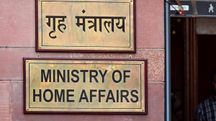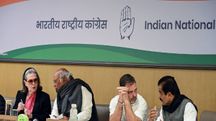Supreme Court rejects plea seeking uniform marriage age for men and women
The top court was hearing a petition filed by advocate Ashwini Upadhyay seeking equality in the legal age of marriage for men and women.
 Supreme Court
Supreme CourtThe Supreme Court (SC) on February 20 rejected a plea seeking uniform minimum age for marriage for both men and women and said that certain matters which are reserved for parliament and courts cannot frame a law.
A bench headed by Chief Justice DY Chandrachud opined that the apex court cannot issue a mandamus (an extraordinary writ) for parliament to legislate.
''We must defer to the parliament. We can't enact law here. We should not perceive that we are the exclusive custodian of the Constitution. Parliament is also a custodian,'' the bench noted while rejecting the said plea.
The top court was hearing a petition filed by advocate Ashwini Upadhyay seeking equality in the legal age of marriage for men and women.
Men in India are permitted to get married at the age of 21, while the marriageable age for women is 18 years.
''The Petitioner seeks that women's age of marriage should be increased to 21 to be on par with men. Striking down of provision will result in there being no age for marriage for women. Hence petitioner seeks a legislative amendment. This court cannot issue a mandamus for parliament to legislate,'' the bench said.
“We decline this petition, leaving it open to the petitioner to seek appropriate directions,” it added.
The petitioner argued that the plea was filed raising a legal question and forming a task force to look at the issue will not serve the purpose.
The petitioner further claimed that the difference in marriage age violated the principles of gender equality, gender justice, and dignity of women.
“The petition challenges a blatant, ongoing form of discrimination against women. That is the discriminatory minimum age limit for marriage for men and women in India,'' the petitioner in its plea contended.
Also read: Delhi-Deoghar IndiGo plane diverted to Lucknow following bomb scare
Copyright©2026 Living Media India Limited. For reprint rights: Syndications Today









